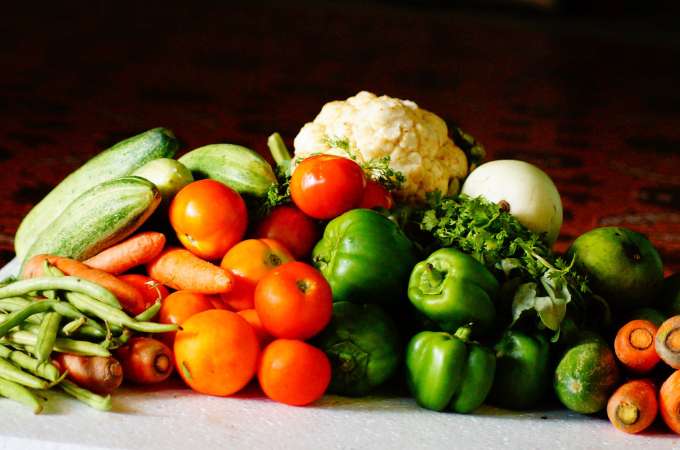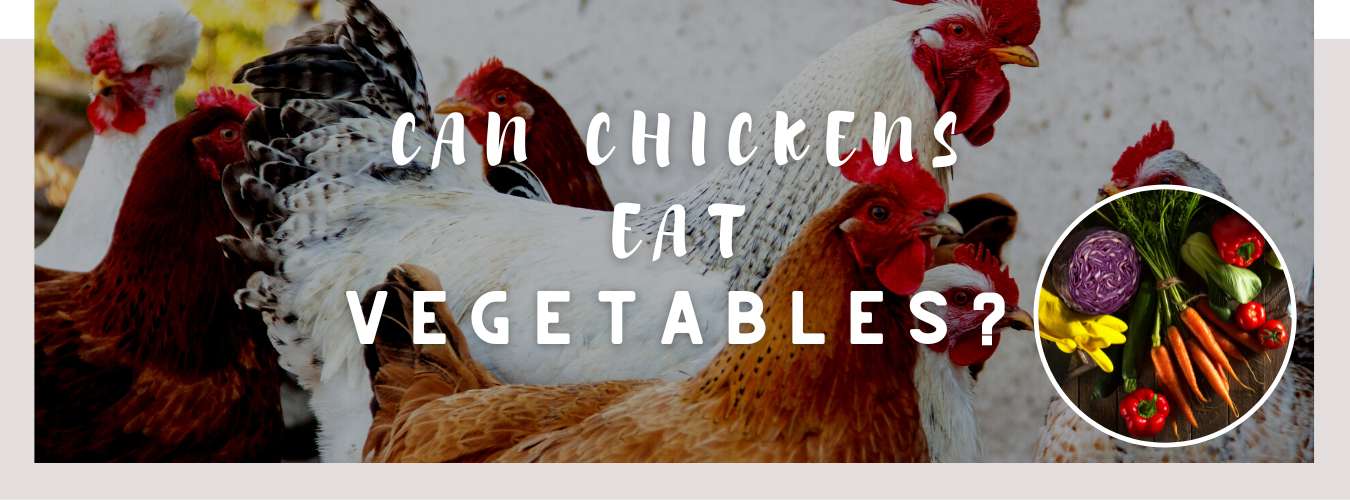
Chickens are known for their diverse and often surprising diet, which can include a variety of foods. A common question among poultry enthusiasts and backyard chicken keepers is: “Can chickens eat vegetables?” This article aims to provide a comprehensive answer to this query, exploring the benefits, potential risks, and guidelines for feeding vegetables to chickens.
Understanding Chickens’ Dietary Needs
Chickens are omnivores, meaning they consume both plant and animal-based foods. Their natural diet includes seeds, insects, and green plants. Vegetables can be a healthy addition to their diet, offering essential nutrients that contribute to their overall health and egg production.
Nutritional Benefits of Vegetables for Chickens
Vegetables are packed with vitamins, minerals, and fiber, which are beneficial for chickens. They can help in boosting the immune system, improving digestion, and ensuring the overall well-being of the birds. For instance, leafy greens are rich in vitamins A and C, while carrots provide beta-carotene, essential for good vision.
Safe Vegetables for Chickens
Most vegetables are safe for chickens, but it’s important to introduce them gradually. Safe options include:
- Leafy greens like spinach, kale, and lettuce
- Root vegetables such as carrots and beets
- Cucumbers, squash, and pumpkins
- Broccoli and cauliflower
These vegetables can be given raw, cooked, or as part of kitchen scraps. However, it’s crucial to ensure they are clean and free from pesticides.
Vegetables to Avoid
While many vegetables are safe, some can be harmful to chickens. It’s important to avoid:
- Potatoes and tomatoes (green parts and leaves are toxic)
- Onions and garlic in large quantities
- Avocado (the pit and skin contain persin, which is toxic)
Knowing which vegetables to avoid is as important as knowing which ones to include in their diet.
You might also like: Can Chickens Eat Asparagus Stems?

Quantity and Frequency
Moderation is key when feeding chickens vegetables. They should not replace the primary diet of commercial chicken feed, which is specially formulated to meet their nutritional needs. Vegetables should be considered a supplement or treat, making up no more than 10% of their overall diet.
Preparing Vegetables for Chickens
When introducing vegetables to chickens, it’s important to consider preparation:
- Chop vegetables into small, manageable pieces to prevent choking.
- Remove any spoiled or rotten parts, as they can harbor harmful bacteria.
- Wash all vegetables thoroughly to remove dirt and pesticides.
Impact of Vegetables on Egg Production and Quality
Introducing vegetables into a chicken’s diet can have a positive impact on egg production and quality. Nutrient-rich vegetables can enhance the nutritional content of the eggs, particularly in terms of vitamin and mineral content. For instance, feeding chickens leafy greens high in omega-3 fatty acids can result in eggs with increased levels of these beneficial fats. Similarly, the inclusion of carrots and other vegetables rich in beta-carotene can improve the yolk color, making it more vibrant and appealing.
Seasonal Feeding and Variety
Chickens benefit from a varied diet, and incorporating seasonal vegetables can provide this diversity. Seasonal feeding not only ensures that chickens receive a range of nutrients but also aligns with their natural feeding habits. In spring and summer, a variety of leafy greens, cucumbers, and berries can be introduced, while in the fall, pumpkins and squash are excellent choices. This not only keeps the diet of the chickens interesting but also can be more cost-effective for the keeper.
You might also like: What Can Chickens Eat?
The Role of Vegetables in Behavioral Health

Feeding vegetables to chickens also plays a role in their behavioral health. Chickens are naturally curious and enjoy pecking and foraging. Providing a variety of vegetables encourages these natural behaviors, which can reduce stress and boredom in the flock. Hanging vegetables like cabbages or placing them in a way that encourages foraging can provide mental stimulation and physical activity, contributing to the overall well-being of the chickens.
Organic vs. Non-Organic Vegetables
The choice between organic and non-organic vegetables is another consideration. Organic vegetables are grown without synthetic pesticides and fertilizers, which can be safer for chickens. However, if non-organic vegetables are more accessible or affordable, they can still be a healthy part of a chicken’s diet as long as they are thoroughly washed to remove any chemical residues.
Hydration and Vegetables
Some vegetables, like cucumbers and lettuce, have high water content. These can be particularly beneficial during hot weather, helping to keep chickens hydrated. However, they should not replace the chickens’ regular water supply. Always ensure that fresh, clean water is available to the chickens, especially when their diet includes salty or dry foods.
Cooking Vegetables for Chickens
While most vegetables can be given raw, cooking certain vegetables can make them easier to digest and more palatable for chickens. For example, cooking hard vegetables like squash or pumpkin can soften them, making it easier for chickens to eat. However, it’s important to avoid adding salt, spices, or oil during cooking, as these can be harmful to chickens.
Monitoring Health and Diet Adjustments
As with any dietary change, it’s important to monitor the health of the chickens after introducing vegetables. Look for signs of good health such as active behavior, regular egg production, and a healthy appearance. If any negative changes are observed, it may be necessary to adjust their diet. Consulting with a veterinarian or a poultry nutrition expert can provide guidance tailored to the specific needs of the flock.
Final Thoughts
In conclusion, vegetables can be a valuable addition to a chicken’s diet, offering nutritional benefits, enhancing egg quality, and supporting behavioral health. By choosing the right vegetables, preparing them appropriately, and monitoring the chickens’ health, keepers can ensure their flock enjoys the full benefits of these nutritious foods.
Contents
- 1 Understanding Chickens’ Dietary Needs
- 2 Nutritional Benefits of Vegetables for Chickens
- 3 Safe Vegetables for Chickens
- 4 Vegetables to Avoid
- 5 Quantity and Frequency
- 6 Preparing Vegetables for Chickens
- 7 Impact of Vegetables on Egg Production and Quality
- 8 Seasonal Feeding and Variety
- 9 The Role of Vegetables in Behavioral Health
- 10 Organic vs. Non-Organic Vegetables
- 11 Hydration and Vegetables
- 12 Cooking Vegetables for Chickens
- 13 Monitoring Health and Diet Adjustments
- 14 Final Thoughts









